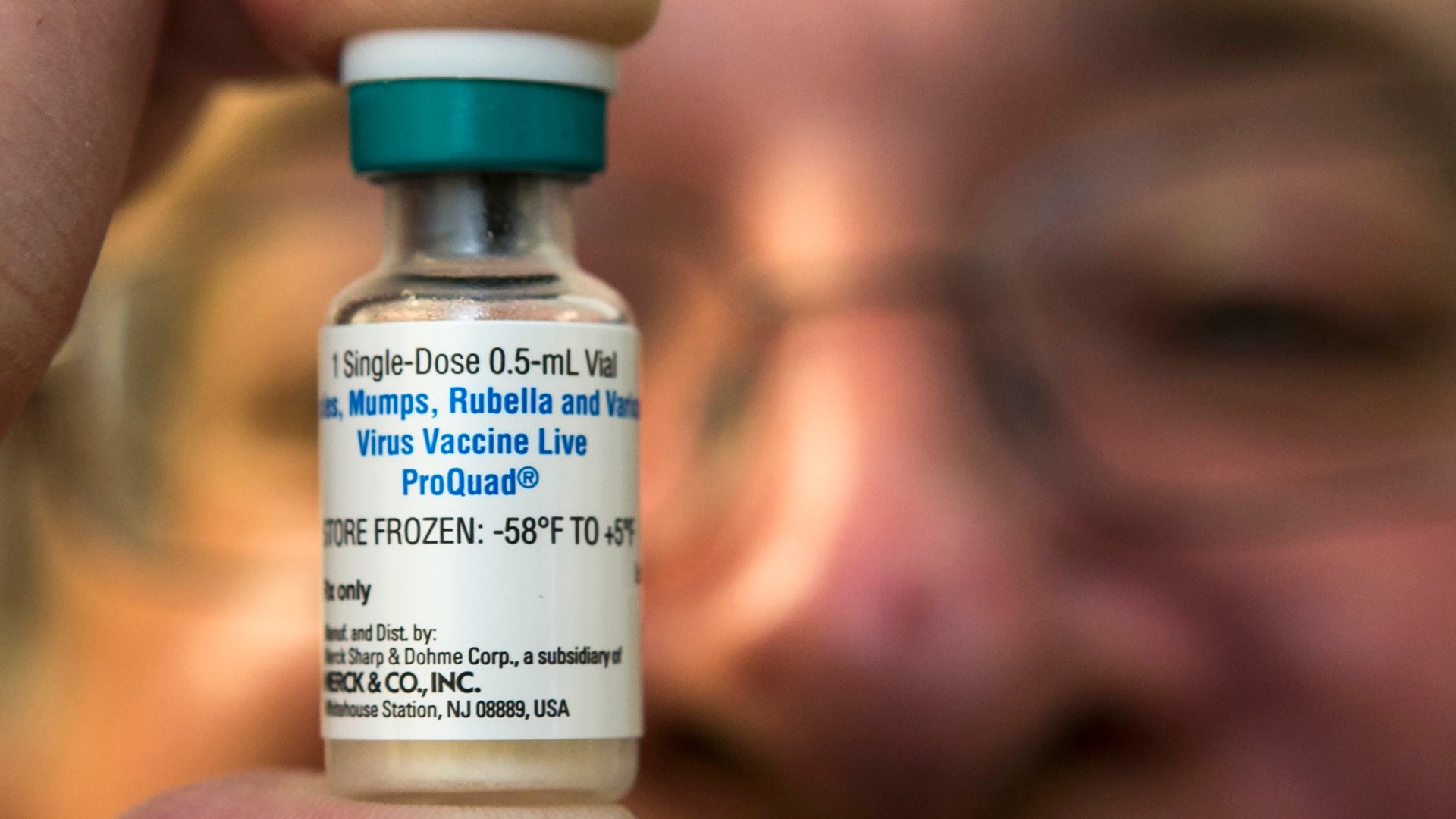Measles infections in the US have already surpassed 2017 numbers
It’s a kooky word, but there’s nothing funny about measles.


It’s a kooky word, but there’s nothing funny about measles.
The condition leaves a person’s body feeling achey. Fatigue, malaise, a fever, sore throat, a creeping skin rash, and even brain swelling are also symptoms that threaten to set in. Traveling by air, the virus is highly contagious, but easily contained if children are administered a simple, two-dose vaccine.
But that’s just the thing—children have to actually get vaccinated. A growing number in the US today are not, and it’s starting to show.
The number of measles cases in the first three months of this year is already outpacing the total number recorded in all of 2018, according to a new report issued this week by the US Centers for Disease Control and Prevention (CDC). Those 387 cases are spread throughout 15 states, including California, New York, Texas, and Washington. In 2018, only 372 cases were reported.
That’s still a lot better than what the US medical community wrestled with before the introduction of the measles vaccine program in 1963. Before then, about 500,000 cases were reported to the CDC; based on those reported numbers, agency estimates that close to 4 million Americans per year actually caught the virus. About 400 to 500 people died from measles every year, and over 48,000 experienced symptoms so bad that they had to be hospitalized.
Nevertheless, it’s worrying that a health problem that was on its way to eradication is gathering strength again. The situation is already worse in Europe, where in the first six months of 2018 the number of measles cases surpassed 23,500, a huge number compared to the 6,000 cases reported in all of 2017.
These data are the reason so many health professionals are worried about the social movement against vaccinations that has gathered steam across the last couple decades. Some people oppose them on religious grounds. Others see mandatory vaccination as interference by the government. And still others are concerned about the safety or efficacy of vaccines, with one prominent conspiracy theory suggesting the vaccine is linked to autism—an idea that the scientific evidence has debunked for years.
Public health authorities, including the World Health Organization, have stated in clear terms that resistance to vaccinations is a risk to the greater population.